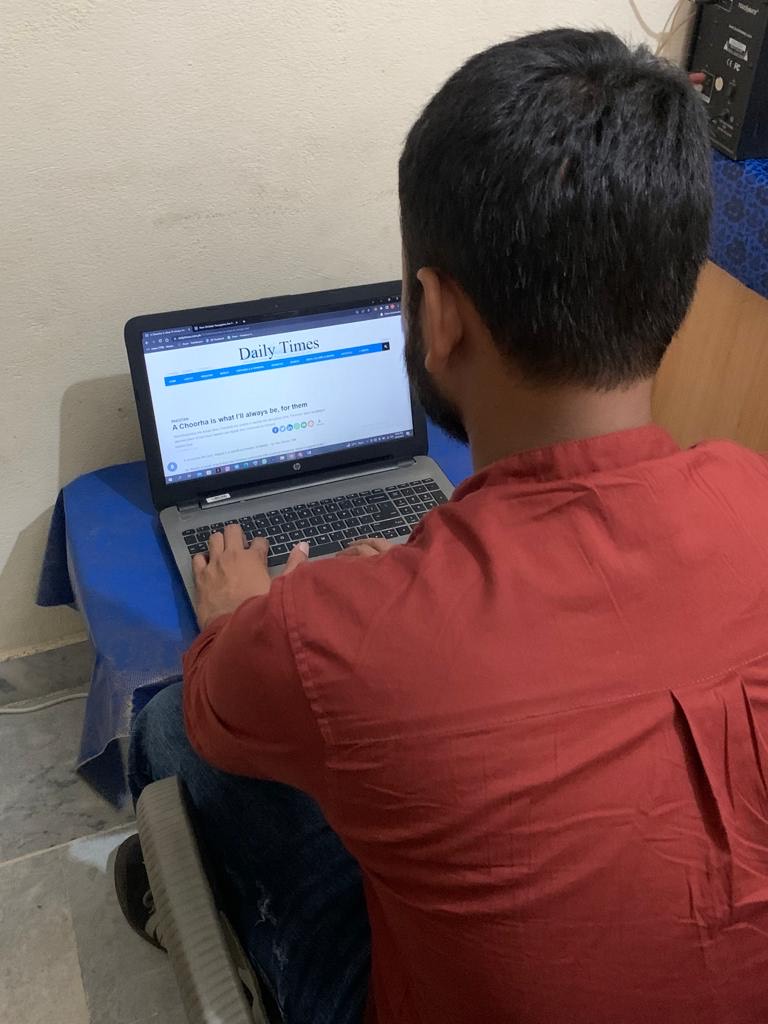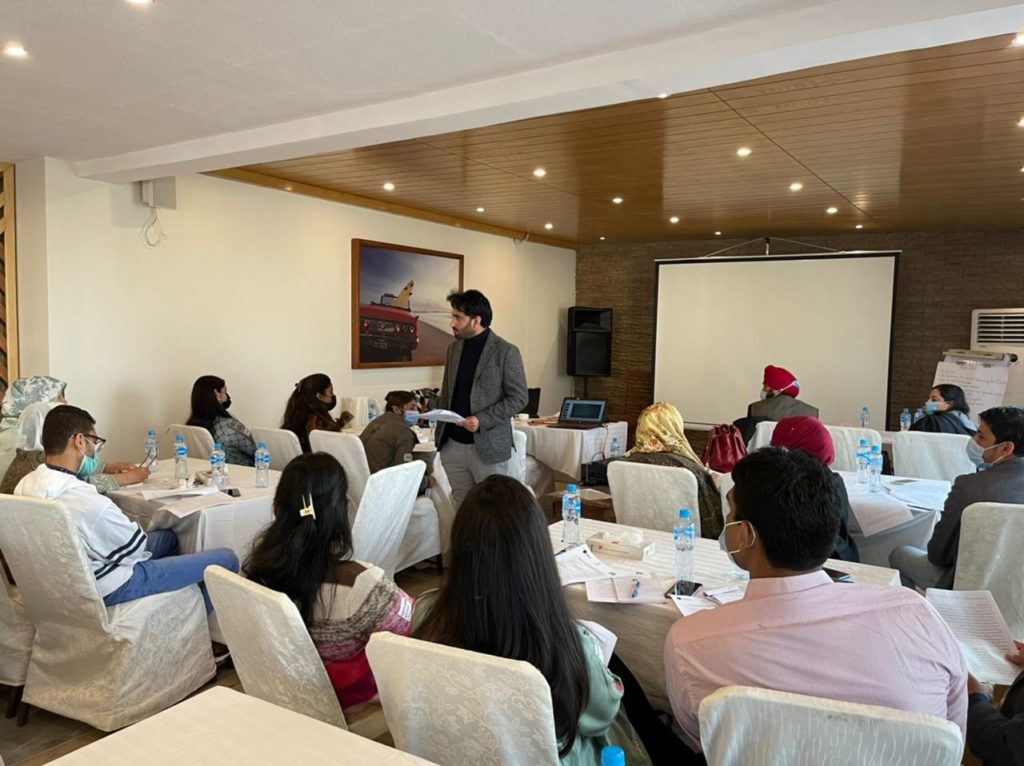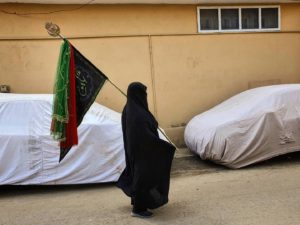Mohsin is a resident of 66 Quarter, a Christian neighbourhood in Islamabad, Pakistan. He comes from a socioeconomically disadvantaged background. He has been a grassroots activist who focuses on the issues faced by the Christian community in Islamabad and Rawalpindi. But with no background in writing, Mohsin had never been able to write about the issues he has witnessed and experienced. Now, following his training with the CREID-supported Ravadar blog platform where he began publishing his first articles, Mohsin is now being published in mainstream newspapers such as Daily Times and Naya Daur.
“When my first blog was published in Daily Times, I became motivated to write more since it raised an issue in the mainstream media that was never discussed before”, said Mohsin.

He believes he is the first from his neighbourhood to be published in a leading English daily. “According to my knowledge, no such person in my locality has achieved this. Although other Christian journalists might be available, there isn’t one in my area at the moment”.
Religious minorities either absent or poorly represented in Pakistan’s mainstream media outlets
Besides existing state restrictions and censorship biases and prejudices within Pakistan’s mainstream media outlets have resulted in religious minorities and their concerns being under-represented and overlooked. With but a few exceptions (particularly English print media), there seems to be a clear bias against religious minorities, especially Christians and Hindus. Their daily experiences of discrimination and persecution are ignored; the only media coverage they might receive is following a major incident, such as a violent, terrorist attack.
In early 2020, this marginalisation was compounded by the Coronavirus pandemic.
Religious and ethnic minorities around the world were being blamed for the spread of Covid19 and suffered discrimination as a result. Pakistan was no exception. Indeed, there were cases in which religious minorities were either blamed for the spread of Covid-19 or discriminated against when it came to accessing relief.
For this reason, we decided in the CREID programme to invite community activists and others to be trained as bloggers and to establish a platform on which we could share their blogs which would document everyday discrimination during the pandemic and cover the issues that are ignored by the mainstream media. With the help of our local partner, the Ravadar blog series was launched in April 2020.
Ravadar helped bloggers from religiously marginalised communities to share their stories
Most Ravadar bloggers are from religiously-marginalised communities and had no previous experience of writing or journalism.
Our local partners worked with them on being able to identify and document experiences of religious discrimination in the community. Following a flurry of widely read and insightful stories published between June and December 2020, we, as a programme, had developed a workshop to train these community bloggers further. In January 2021, we ran a four-day capacity-support programme to train 30 selected community interlocutors and activists from minority marginalised communities.

Part of Ravadar’s ensuing success is, we think, down to CREID’s positionality and methodological approach: stories were collected and written by those from within the communities i.e. Christians wrote about Christians, women wrote about women.
We also took a participatory approach to editorial decision-making. Rather than commissioning or assigning topics to bloggers, we asked them, ‘what do you think we should cover? What stories do you think are not being covered elsewhere?’ The responses were overwhelming, and the stories of everyday experiences of discrimination and persecution (albeit disturbing) provided us with a “ground-level” perspective of FoRB* rarely heard in high-level meetings or read about in academic or legal texts.
“I bring stories and emotions shared by the members of my community”
The Ravadar programme is built around the idea of storytelling, listening to testimonies of religious minorities, and understanding the intersection of marginalisation through personal experiences. Mohsin told us how much he learnt from CREID’s storytelling approach. His framing is now based on listening to stories and conveying them to a wider audience.
“Ravadar’s training helped me a lot by offering tools for story writing, gathering evidence, following up on leads, and the art of storytelling.”
Mohsin added “Identifying stakeholders based on the story, interviewing them, and building a narrative, and collecting facts for the story to cover and raise according to the issues… these tools were beneficial. In addition, … [the idea] using a mobile phone camera to post pictures in the blogs to support evidence and facts was helpful”.
We consider that, Mohsin being published in mainstream newspapers such as The Daily Times and Naya Daur over such a short period of time, as member of a religious minority with no previous writing experience, is a one of the significant outcomes of the Ravadar series, and also one of CREID’s many successful interventions in Pakistan.
“[It] is challenging to get published [in mainstream media, such as Daily Times], due to its large readership, which requires specific writing protocols. Ravadar did help me to get published as the editorial team had the expertise to ensure that the article I wrote matched the standard and protocol of mainstream publications”.
Selected Mohsin’s writings
- Life beside the waste water streams (Daily Times)
- A Choorha is what I’ll always be, for them (Daily Times)
*Freedom of Religion or Belief

